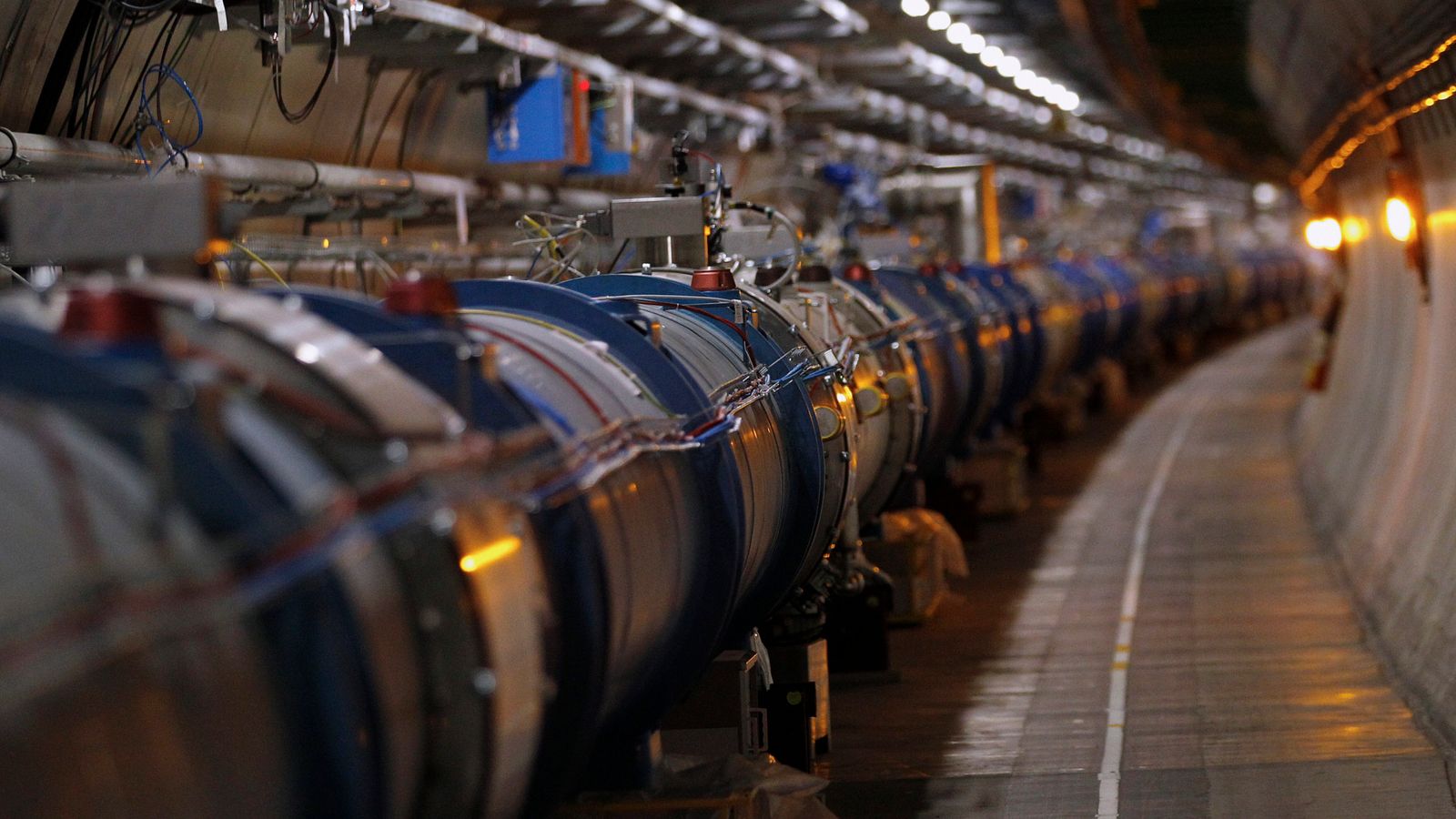Just a few more particles bro

At this rate we will have colliders that encircle the entire planet like a super advanced ancient civilization from a videogame.
Yes it taking too long
I think Sabine would like this.
I feel if they know that this 100km collider can uncover 95% of the secrets of physics then it’s barely an inconvenience to build the 105km collider instead and discover the remaining 5%.
Pareto principle, this is only 20% of what’s needed. So we need another 400km
Construction only begins in the 2040s
why are science projects so slow? can we do anything to speed them up? maybe increase investments?
And who is complaining about 17bn? For what the LHC accomplished and the potential of a new collider. This is about understanding the fundamental nature of the universe and reality. The implications for future tech are limitless.
Not a gotcha question, but what things did the LHC discover that have real practical applications right now other than validating some hypothesis? Because I’ve looked into it before and turned up nothing so I’m wondering what I’m missing.
Your question:
what things did the LHC discover that have real practical applications right now other than validating some hypothesis
Is really multiple questions:
-
Is doing fundamental research with no application in mind useful?
-
Has the LHC led to practical applications usable today
The answer to question 1 is yes.
There’s different types of research programs made to target different goals. Some aim for short or medium term applications, and others are just pure fundamental research.
Just because pure research doesn’t have an application in mind, doesn’t mean it’s not useful. The application isn’t the goal, the expansion of our knowledge base is. Everyone who ever thought up of an application for something did so based on their own knowledge base. If the knowledge base never expands, then we run out of applications to think up. This is why pure research is useful.
And all of history supports this:
- The discovers of rays shooting off cathode-ray-tubes in the 1800s were just doing pure research and had no idea it would lead to TVs
- particle accelerator research lead to invention of cat scans
- chemists trying to research heavier elements leading to the discovery of nuclear fission, leading to nuclear power
- electrolysis research lead to the invention of lead (and rechargeable) batteries
- etc…
The answer to question 2 is also yes:
The obvious ones are:
- improved manufacturing processes
- improved supercooled superconductors
- improved large scale vacuum chambers
- Improved data processing
- Trained a new cohort of experienced scientists/engineers/workers/etc (who can now work on new projects outside of the LHC)
-
Planning. You have to write down every detail, and it takes time and costs money. Someone has to figure out how to manufacture ever part, estimate how many labor hours it will take, select paint colors and door handles and a billion other small things. It will require teams of people coordinating efforts around the globe and getting feedback from every stakeholder imaginable.
Blue. I choose blue. We are now one step closer to a new collider. You’re welcome.
the parts are just more sciency pipes
All big projects are slow. There’s a huge amount of planning, safety regulation, land acquisition, groundbreaking, materials acquisition, construction, assembly, outfitting, testing, testing, testing, then finally they’ll start getting good data. Then they analyze, edit, and publish.
You could throw money at it to get it done faster, but you’d quickly hit diminishing returns. Most of those steps must be done sequentially.
The Future Circular Collider is such a boring, uninspired name.
I think we should take a hint from the astronomers and name it like how they name bigger telescopes.
Very Large Hadron Collider
Could is doing a lot of work in that sentence.
The LHC was expected to do the same.
Yeah I’m just not sure how much I believe this thing is worth the investment at all and the fact that it’s 100km just proves these guys were like “uhhh, let’s make it BIG NUMBER KM LONG.”
I think there’s likely quite a lot of other worthier expenditures in science research than this indulgent toy.
Yeah but like… Isn’t 5% of the universe still a lot? /S
95% of the universe? Why not 96%?
- Overbearing parents everywhere

You can unlock the extra 1% of the universe with an additional 10 billion in funding.
This is the best summary I could come up with:
Scientists at CERN - home to the world’s largest particle accelerator - have put forward proposals for a new “supercollider” which it is hoped will help uncover the secrets of 95% of the universe.
The new proposals come as part of the FCC study by CERN - the European Organisation for Nuclear Research - and would be paid for by its member nations, including the UK, who are all reviewing the plans.
The FCC, which would begin construction in the 2040s and have a circumference of more than 56 miles, has a goal to “push the energy and intensity frontiers of particle colliders” and involves universities and experts from around the world.
CERN’s director general, Professor Fabiola Gianotti, told BBC News: "It is a tool that will allow humanity to make enormous steps forwards in answering questions in fundamental physics about our knowledge of the universe.
Read more on Sky News:Snow warning issued for large parts of the UKUK state pension age will have to rise, say experts
The UK’s former chief scientific adviser, Prof Sir David King, told the BBC: “When the world is faced with threats from the climate emergency, would it not be wiser to channel these research funds into the endeavours to create a manageable future?”
The original article contains 433 words, the summary contains 210 words. Saved 52%. I’m a bot and I’m open source!
Read more on Sky News:Snow warning issued for large parts of the UKUK state pension age will have to rise, say expertsOoups, you “AutoTL;DR” did bad there.
The UK’s former chief scientific adviser, Prof Sir David King, told the BBC: “When the world is faced with threats from the climate emergency, would it not be wiser to channel these research funds into the endeavours to create a manageable future?”
Yes I would say. Anyway, we receive cosmic ray at 1021 electronVolts from outer space. So, nature phenomenas should be studied otherwise.
You know where people/ government shouldn’t put money into? Weapons. So much money wanted on weapon developments where they can be used for sciebe, education, health.








